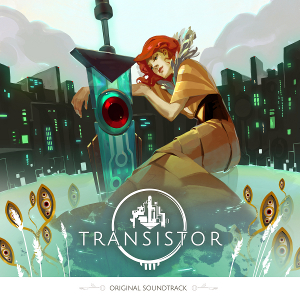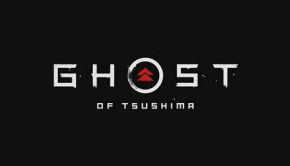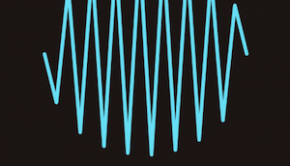Transistor Original Soundtrack
 |
Album Title: Transistor Original Soundtrack |
| Record Label: Supergiant Games |
|
| Catalog No.: N/A |
|
| Release Date: May 20, 2014 |
|
| Purchase: Buy at Official Site |
Overview
Transistor, developed and produced by Supergiant Games, continues a pattern of success with the small-time company following Bastion, their last game released in 2011. The game features protagonist Red, a singer who has lost her voice, and the Transistor, a sword-like item containing the consciousness of a mysterious companion who helps Red survive while an evil, dystopian government hunts them down. The game has received positive reviews since its May release this year, for its compelling storyline, smooth gameplay, and its “perfect” soundtrack which, like the game, is futuristic, unexpected, and twisted, combining a series of unfamiliar elements to create something familiar.
Body
Darren Korb returned to Supergiant to score the game, having previously worked with them on Bastion, the last big release from the smaller company. His writing is not quite like other scores; it’s raw, pulsing, bordering on ambient but without any sense of monotony, laced with lyrical songs and acoustic guitar and accordion (and is that a harp, too?) and a slew of electronic instruments, deliberately synthesized sounds I couldn’t begin to name. The songs boast flavors from a multitude of genres without actually falling under a single fitting label. The first track, “Old Friends”, features electric guitar in a tattoo-like pattern as other instruments swell and fall back to give the piece a form. An electronic percussion gives way to a drumset as something vaguely reminiscent of a chorus holds some high notes in the background. The third song, “Forecast”, changes the pace of the soundtrack a little to a faster, smoother, and lighter style, incorporating very light percussion along with an unlikely harp/electric guitar duo accompanied by a constant static that is soft enough that you can only hear it when you’re not actually listening for it.
It’s hypnotizing, and for those who heard Korb’s score to Bastion, this album won’t let you down — particularly for those who enjoyed the vocal talents of Ashley Barrett, who returned for Transistor to contribute five excellent songs. The first of her songs, “The Spine”, is hardly the best, although it’s certainly catchy, beginning with a round of electric guitar tropes and the casual, almost lounge-singer style of Barrett. “The Spine” does capture her vocal talents very well; she boasts a silky, warm vibrato, and hits each note with a calm confidence. The impressive tonal leaps and dynamic changes sound effortless when Barrett sings them. I actually prefer the other four songs, however. “In Circles” begins with a swinging rhythm and strangely forte harp strings, and then Barrett enters with a soulful melody rising to a climatic chorus. The moods of Transistor‘s soundtrack vary throughout the album, but this is certainly one of the darker pieces, performed in a lower octave and a distinctly minor key, with a clearer form than a few of the other tracks.
“We All Become” opens with a rapid melodic pattern first introduced in an earlier track “Vanishing Point”; this time, it’s on that now-familiar harp, rising and falling in a pattern similar to “In Circles”, but with a more vibrant energy; “In Circles” came across almost like a lament, but “We All Become”‘s quick pace and constant harp ostinato is a song of energy and encouragement, something I want to hear at the beginning of a difficult mission when I most need a renewed resolve. “Signals” is my favorite of her songs, though; it uses a minimalist combination of instruments, featuring only Barrett and a guitar or two (whether one guitar goes from acoustic sounds to electric, or two different guitars are actually used is unclear). The energy from “We All Become” seems gone at the beginning of this song, but is subtly present in the chorus. We don’t need the ostinatos or rhythms or rapid notes to feel that energy; with a very gentle, echoed sound in the chorus, the song is bursting with life and potency in through soft and carefully-crafted means.
Other songs on the soundtrack demonstrate Kolb’s versatility in composition. “Coasting” incorporates a capricious acoustic guitar and several anonymous percussion instruments. In the midst of the fast-paced and electronic-heavy album, the trackgives the listener a break, allowing them to pause, relax, and enjoy the beach-like sounds of fresh guitar. The soundtrack thereafter moves on to “Vanishing Point”,beginning with the quick melody of “We All Become”, this time with an accompanying staggered percussive pattern. The melody returns again in “Apex Beat”, and it’s a run realization. The melody/pattern is shoved to the background as yet another nameless electronic solo sound (not quite an instrument) barges in with a melody of its own before the entire piece pauses to replay the melody on softer, lower electronic tones before the harp returns.
“Waterwall”, on the other hand, begins with the percussion opening of any other song, but unexpectedly transforms into something of a tango, consisting of a back-and-forth between a staccato accordion, harp, and a distorted, synthesized, nameless solo instrument to add variation to the awkward and whimsical melody. The repeats are divided by a some type of perfectly untuned, synthesized piano playing an aimless melody that is quickly juxtaposed by the mild-turned-harsh rhythm returning. This might be my favorite track on the entire album: it’s weird, dance-like, rhythmic, and when all put together, it’s just plain fun. It’s hard to think of a piece with such a distinct lack of tangible melody as being catchy (and catchy is always a plus for me), but this one somehow fits that description. It’s a quirky and twisted demi-tango, and it works.
“Sandbox” brings back the mood of “Coasting”, with some softly-plucked strings, this time on a mandolin, gentle handheld percussion instruments, and an electric guitar playing a song-like melody. You’d almost expect some calypso drums during this song; it feels calm and tropical, although it becomes more synthesized as the piece continues. At the repeat, though, the electronics drop off to leave the raw mandolin again. Like “Coasting”, “Sandbox” is followed by a more heavily edited and synthesized piece: “Interlace”. This piece combines the laid-back nature of some of the more acoustic pieces on this album with electronic techniques, using the rippling harp to keep it light while maintaining a more intense synth rhythm.
The final track in Kolb’s score is sung by Barrett again; “Paper Boats” serves as a fitting conclusion to such a varied soundtrack, maximizing the potential of Barrett’s low and silky voice, rising to the highest notes of the alto range without any signs of exertion. I love how easily Barrett is able to move around her range, each concluding note warm with a sheer and slow vibrato. The accompanying instruments are the same as much of the sound in the rest of the soundtrack, from the synthesized percussion, piano, harp, to the gently swinging rhythm and rising, climactic form of the piece. It’s a wonderfully triumphant conclusion to the impressive soundtrack, serving as yet another demonstration of Barrett’s vocals and Kolb’s compositional abilities.
Summary
Overall, the diversity of Transistor‘s soundtrack is only a part of its strength; it wouldn’t be nearly as successful had the different types of music featured in the album not been so strong. However, as it is, the collection of pieces are impressive, working extraordinarily well both within and outside of the game, enhanced by Ashley Barrett’s clear vocal talents. I am looking forward to Kolb pairing up again with Barrett and Supergiant to create another memorable score like this one.
Do you agree with the review and score? Let us know in the comments below!
4
Posted on July 20, 2014 by Emily McMillan. Last modified on July 19, 2014.














